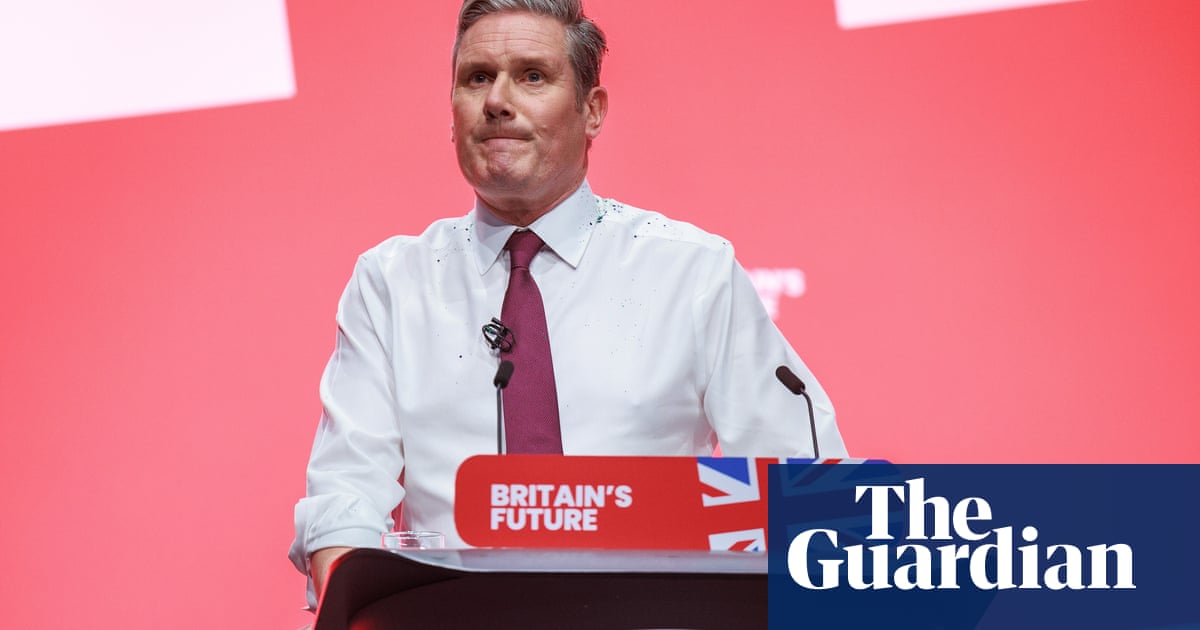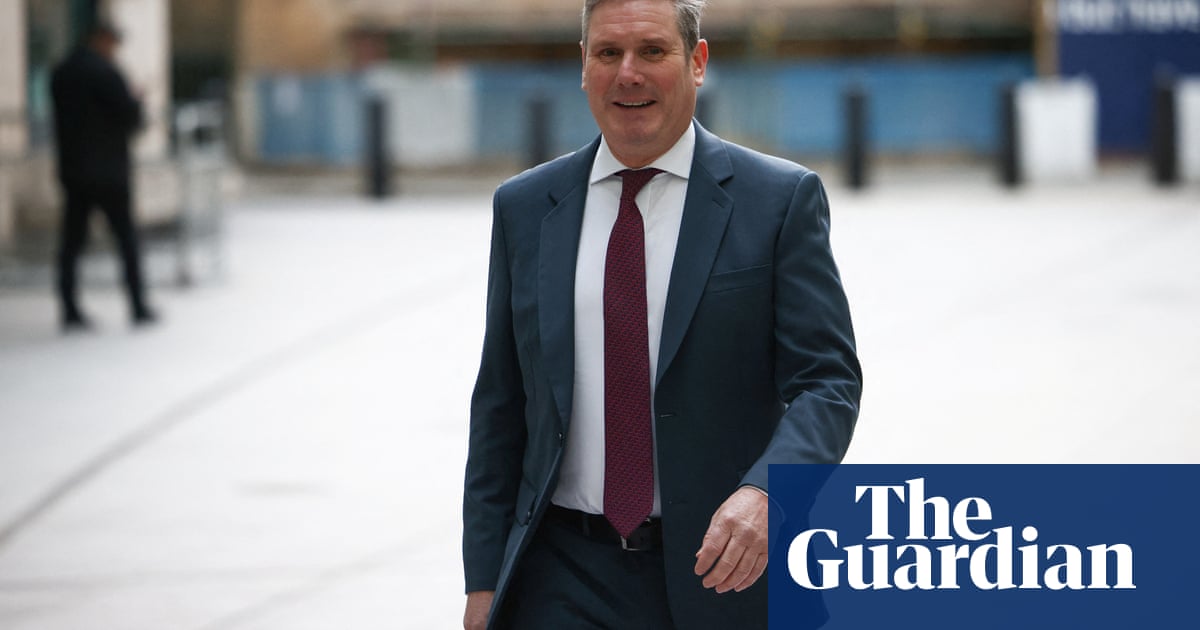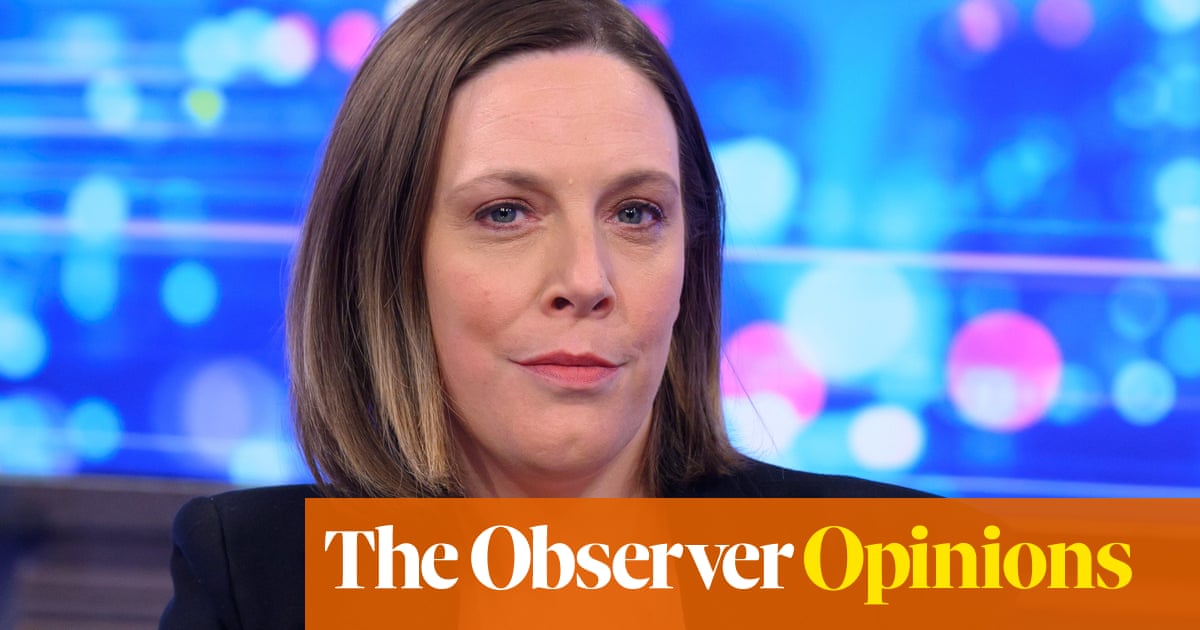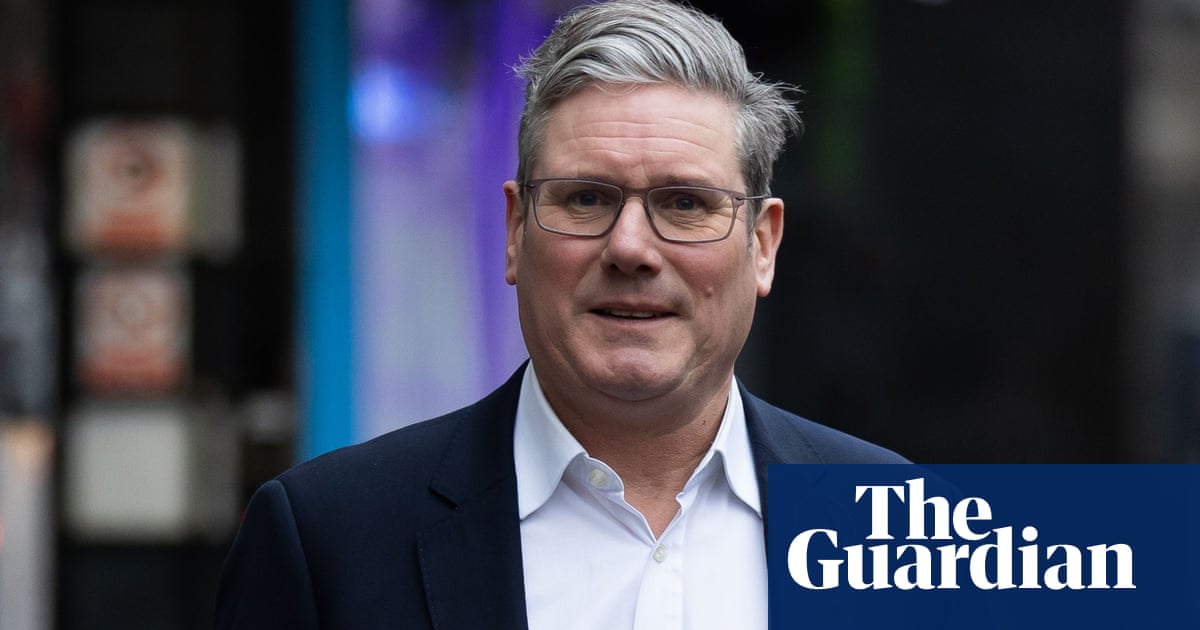
Keir Starmer would not have wanted a rogue protester to cover him in glitter as he stood up to give his crucial conference speech.
But the overall image of a Labour leader sparkling from the stage for an hour ended up doing him no harm. Jacket off and sleeves rolled up, Starmer recovered immediately and made the incident into a virtue, with huge applause from the hall. “This is why we changed our party. Power, not protests,” he quipped.
It was not a showy, glittering speech in tone, but over the course of the hour Starmer built up a coherent, overarching case for why Labour should be in government.
Although there were no major new announcements, he set out core policies where there is clear difference with the Conservatives.
Labour would build 1.5m new houses and overhaul the planning system, “speed ahead” with green projects, and bring in a package of improvements to workers’ rights.
It was the strongest statement from Starmer so far on scrapping zero-hours contracts and banning fire and rehire – after finding that the party’s promise of reforms to make work pay went down well on the doorstep in the Rutherglen and Hamilton West byelection.
But more than the policies, Starmer’s speech was about his messaging: that Labour understands the concerns of voters, is here to serve them, and solve Britain’s problems.
The Labour leader spent his past few conference speeches making the case that the party has changed since the Jeremy Corbyn era and then critiquing the Conservative government. His goal this year was properly answering the exam question of what Labour would do differently: ending the age of insecurity and anxiety, opting instead for stability and national renewal.
Starmer also made his pitch to voters that he is ordinary and understands their concerns in a way the multimillionaire, helicopter-riding Sunak can never do. There were the mentions of his family’s pebbledash semi, his toolmaker father, of football and fishing, and holidays in the Lake District. In contrast, he directly mocked Sunak for having to borrow a shopworker’s car for a photo opportunity and called him “shallow” for being unable to see, listen or stand in the shoes of voters.
Addressing concerns about the cost of living, he spoke of meeting a woman in a cafe who told him she could never think “let’s do something nice any more”.
“The cost of living crisis intrudes on the little things we love. Days out, meals out, holidays: the first things people cut back on. Picking up a treat in the supermarket to put it back on the shelf … we have to be a government that takes care of the big questions so working people have the freedom to enjoy what they love. More time, more energy, more possibility, more life.”
There was plenty in the speech for core Labour supporters and the trade unions, especially the pledges on workers’ rights.
But at the same time, Starmer was keen to broaden the party’s offer to all voters – making the case that his party would get businesses and workers in partnership, tackle NHS changes and go for economic growth. He made direct appeals to Tory voters that Labour stood for the rule of law and conserving what is good, while also reaching out to Scottish National party voters, promising that Scotland would “lead the way to a Labour government”.
After a speech spent planting himself firmly in the centre ground of politics, he warned the Tories had become “dangerous” with their decision to swim in the “murky waters of populism and conspiracy”, painting the governing party as the extremist outlier and Labour as the mainstream.
Threaded through the speech was a promise to “get Britain’s future back”, with a subtle echo of the Brexit campaign’s promise to “take back control”. Starmer was relentlessly focused on Labour’s plans for the future, but the slogan also contained a nod to those who want to return to a time in the past when things in Britain worked and life did not feel so tough.
The narrative arc was all there and the positioning of Starmer as a candidate for change. But before the next election, he may well need more voter-friendly policies to persuade people that they will be tangibly better off under Labour – especially in the pocket.
There is little wriggle room in the public finances for expensive, eye-catching policies but the Tories will undoubtedly go into the next election having found room for tax cuts.
At an election, voters will look at promises of housebuilding and green investment saying: “That’s great, but what will help me right now?” With a year to go, there is still time for that to be set out in an election campaign and manifesto. But that is the final piece of the puzzle Labour will need to find.












